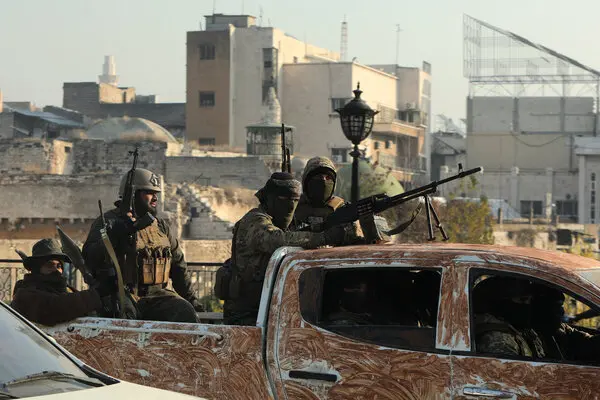
Syria’s civil war has entered a critical phase as rebel forces seize control of strategic cities, including Aleppo, Homs, and Daraa. The rapid advances bring them perilously close to the capital, Damascus, intensifying the pressure on President Bashar al-Assad’s government. Unconfirmed reports suggest Assad has fled to Russia with his family, though Syrian officials have dismissed these claims as unfounded. However, Reuters, citing Syrian military sources, confirms Assad’s departure on a special flight.
Bashar al-Assad has been at the helm of Syria for 24 years. The seeds of dissent were sown in 2011 with widespread protests against his regime. What began as peaceful demonstrations evolved into a protracted civil war, drawing in multiple foreign and extremist factions. Among these is Hayat Tahrir al-Sham (HTS), now the most powerful rebel group in Syria. HTS is linked to Al-Qaeda and is classified as a terrorist organization by the United States and other countries.
HTS is led by Abu Mohammad al-Golani, a divisive figure who has promised not to interfere with the lives of Syria’s minorities. Despite these assurances, fears remain about the possibility of a harsh Islamic rule under HTS’s leadership. International observers continue to express concerns about the group’s ideology and its potential to trigger Islamist violence beyond Syria’s borders.
As the Assad regime loses its grip on power, the Syrian army’s retreat from critical fronts has deepened fears of a full-scale civil war. Over 3,70,000 people have been displaced due to escalating violence, according to the United Nations. Daraa, where the 2011 uprising began, has fallen to rebel forces, symbolizing the Assad government’s waning control. Meanwhile, HTS’s capture of Aleppo and Homs solidifies its dominance over key regions.
The conflict reached a turning point in late November when fierce clashes erupted between the Syrian army and rebel groups. By December 1, the rebels had taken control of Aleppo, followed by Homs and Daraa. The fall of Daraa, just 90 kilometers from Damascus, marks a significant blow to Assad’s forces. Rebel fighters now openly patrol the streets of these cities, celebrating their victories and displaying their arsenal.
In response to the escalating violence, India’s Ministry of External Affairs has urged all Indian nationals in Syria to leave immediately and avoid conflict zones. The Indian Embassy in Damascus remains operational to assist citizens seeking help during the crisis.
Newly elected U.S. President Donald Trump has made it clear that the Syrian conflict is “not America’s fight,” signaling a shift from previous U.S. policies. Criticism has also mounted over Russia’s limited support for its traditional ally, Assad, further isolating the embattled leader. The lack of robust international intervention adds to the complexity of Syria’s deteriorating situation.
The ongoing rebellion has far-reaching implications for regional and global stability. Syria’s strategic location in West Asia makes the conflict a potential trigger for regional unrest. Experts warn of possible destabilization in neighboring countries, disruptions in global oil supplies, and a surge in prices. Additionally, the crisis risks exacerbating tensions among nations with vested interests in Syria’s future.
As the civil war deepens, Syria’s future hangs in the balance, with the international community closely monitoring the situation. The ripple effects of this conflict could reshape geopolitical dynamics and influence the global economy, underscoring the high stakes of this escalating crisis.






